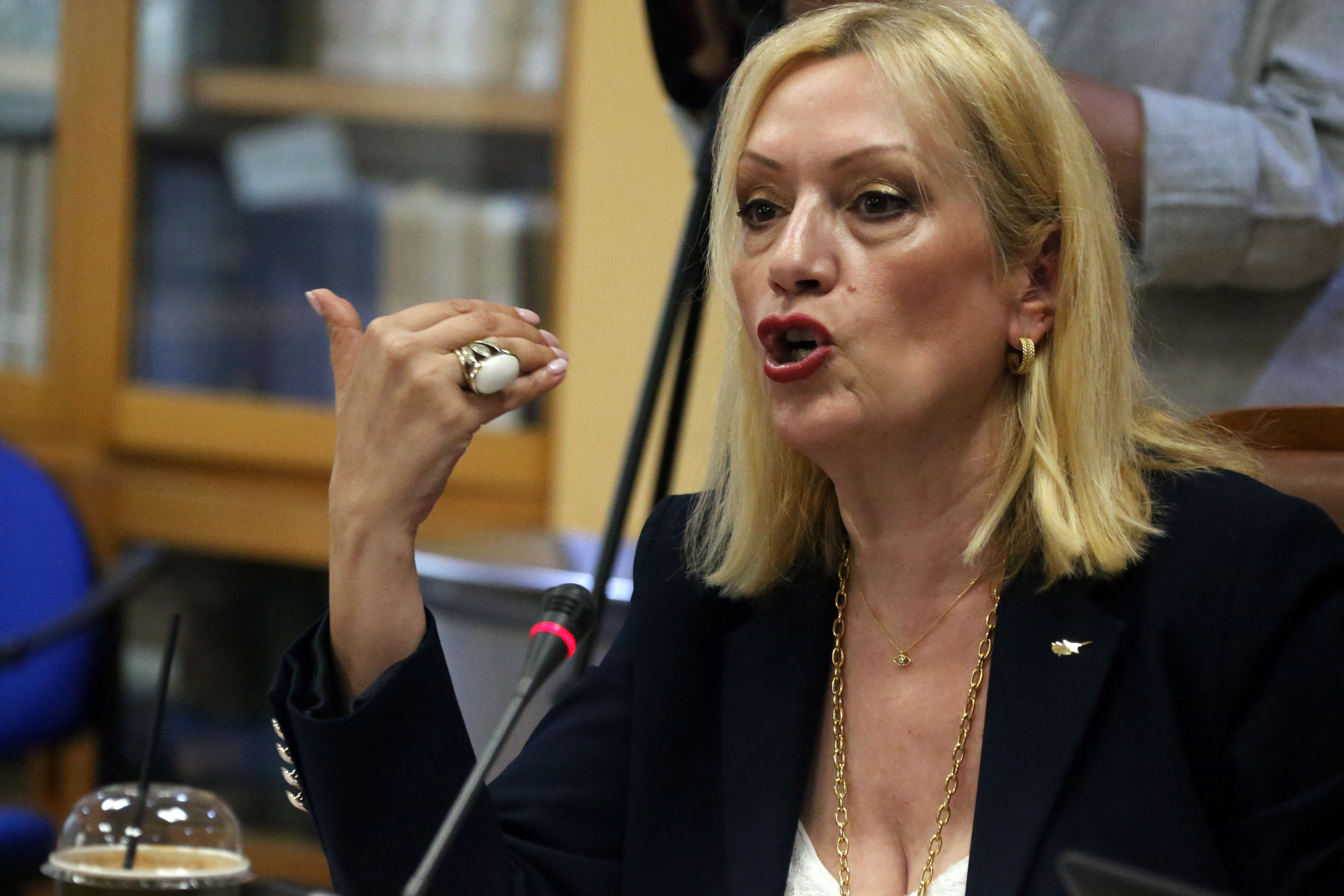A debate in parliament about a controversial law regulating public gatherings quickly turned chaotic on Monday, as politicians also bickered about last week’s pro-Palestinian protest while also arguing about whether Israel exerts undue influence on Cypriot domestic affairs.
Officially, the discussion was supposed to be about a law passed last July regulating public gatherings and parades. Critics call it draconian, and are citing a damning report issued last month by the Organisation for Security and Cooperation in Europe (OSCE).
Opposition party Akel – the most vociferous critics – has tabled a bill to repeal that law.
Tempers flared at the House human rights committee, when Akel MP Giorgos Koukoumas brought up the clashes between demonstrators and police last Thursday outside the foreign ministry building in Nicosia.
“I was there, should the police want to summon me as a witness,” Koukoumas said. “The demonstrators never closed down the road, as they [the police] claim.”
His Akel colleagues then chimed in, asserting that last week’s incidents served as a “dress rehearsal” for the authorities in applying the law on public gatherings.
Koukoumas’ remarks provoked a reaction from Justice Minister Marios Hartsiotis, who snapped back saying he was there to discuss the law, not last week’s protest or the police’s conduct.
Committee chair Irini Charalambidou (Akel) got into the mix, telling the minister not to interrupt and wait his turn to speak.
At one point, Disy MP Onoufrios Koulla threw in a loaded remark: “Cyprus is a sovereign state”.
To which Charalambidou quipped: “Does Israel know that?”

It’s understood that Koulla was alluding to insinuations that authorities here are cracking down on pro-Palestinian demonstrators in order to kowtow to Israel.
Stepping in, Diko MP Christos Senekis said: “We are no errand boys for Israel. It was during the presidency of [Demetris Christofias] that we used to do errands for others, and as a result Cypriots got killed at the Mari naval base.”
Deputy police chief Panicos Stavrou asserted that authorities never tried to break up last Thursday’s demonstration held in support of the Gaza-bound flotilla.
Rather, police officers had tried to get a group of demonstrators to get back on the pavement. When the demonstrators did not comply, police used “proportionate force”.
Eventually the discussion got back on track, to the contentious law on public gatherings.
Charalambidou said she has invited a delegation of the OSCE to visit Cyprus and explain in person their observations on the law.
OSCE experts have a great deal to say about the matter, she noted. Whereas the law itself is just three pages long, the OSCE’s report consists of 32 pages of observations and recommendations.
For his part, the justice minister asserted that Akel MPs are misrepresenting the OSCE’s take.
“Nowhere does the law contain the word ‘prohibit’. So much for the so-called ‘terror law’. Where is the junta-like character in the law? Where is the muzzling?”
Hartsiotis insisted that the text of the law does not give authorities the power to ban demonstrations.
“Let them show me where it says explicitly about prohibition. Organisers have the right, not an obligation, to inform police ahead of time.”
At the same time, the minister conceded that the legislation could use some improvements. For example, a clause that says that any single act of violence in the vicinity of a demonstration can be used as grounds to disperse the gathering.
Hartsiotis went on to briefly describe what other European countries do in relation to public gatherings.
He said that Greece is considered “the strictest country”, where police can in fact ban protests. Plus, organisers are legally liable to compensate any individuals harmed by protesters.
In Germany, authorities can prohibit protests if they deem them “dangerous”.
In Belgium, each demonstration requires approval from the local mayor. And in the Netherlands, organisers must notify municipalities ahead of time.






Click here to change your cookie preferences